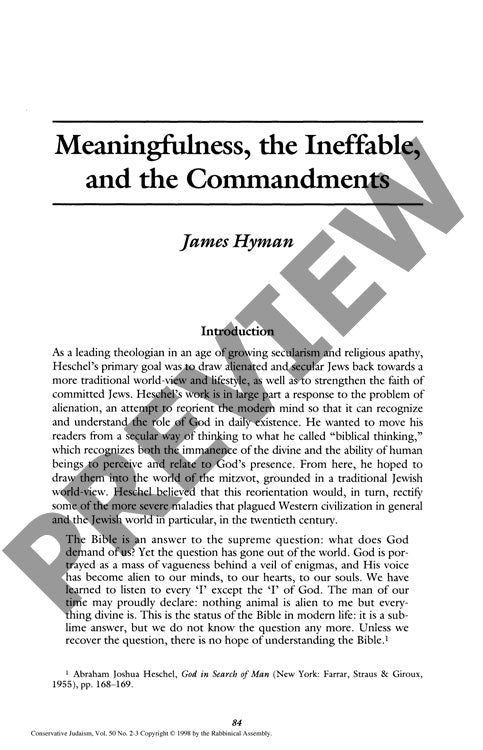Meaninfulness the Ineffable and the Comm
Couldn't load pickup availability
Abstract This article examines Abraham Joshua Heschel's theological response to modern Jewish alienation through his concepts of meaningfulness, the ineffable, and the commandments. Employing textual analysis of Heschel's major works including "God in Search of Man" and "Man is Not Alone," this study investigates how Heschel attempted to bridge secular and religious worldviews through experiential theology. The methodology focuses on tracing the connections between Heschel's understanding of ineffable experiences, divine meaningfulness, and halakhic practice. Key findings reveal that Heschel grounded religious authority in personal experiences of the ineffable, which he argued could be accessed through proper performance of the mitzvot. His approach emphasized individual encounters with transcendent meaning as pathways to traditional Jewish observance, representing a departure from purely legalistic interpretations of Judaism. However, the analysis identifies a fundamental tension in Heschel's system: while he sought to establish rabbinic authority through experiential validation, his emphasis on personal religious experience ultimately undermined systematic halakhic commitment. The study concludes that Heschel's experiential theology, though innovative in addressing modern alienation, failed to resolve the conflict between individual autonomy and traditional religious authority, leaving questions about practical halakhic application largely unaddressed.

More Information
-
Physical Description
-
Publication Information
Published 1998
ISBN
-
Publication Credits
James Hyman

